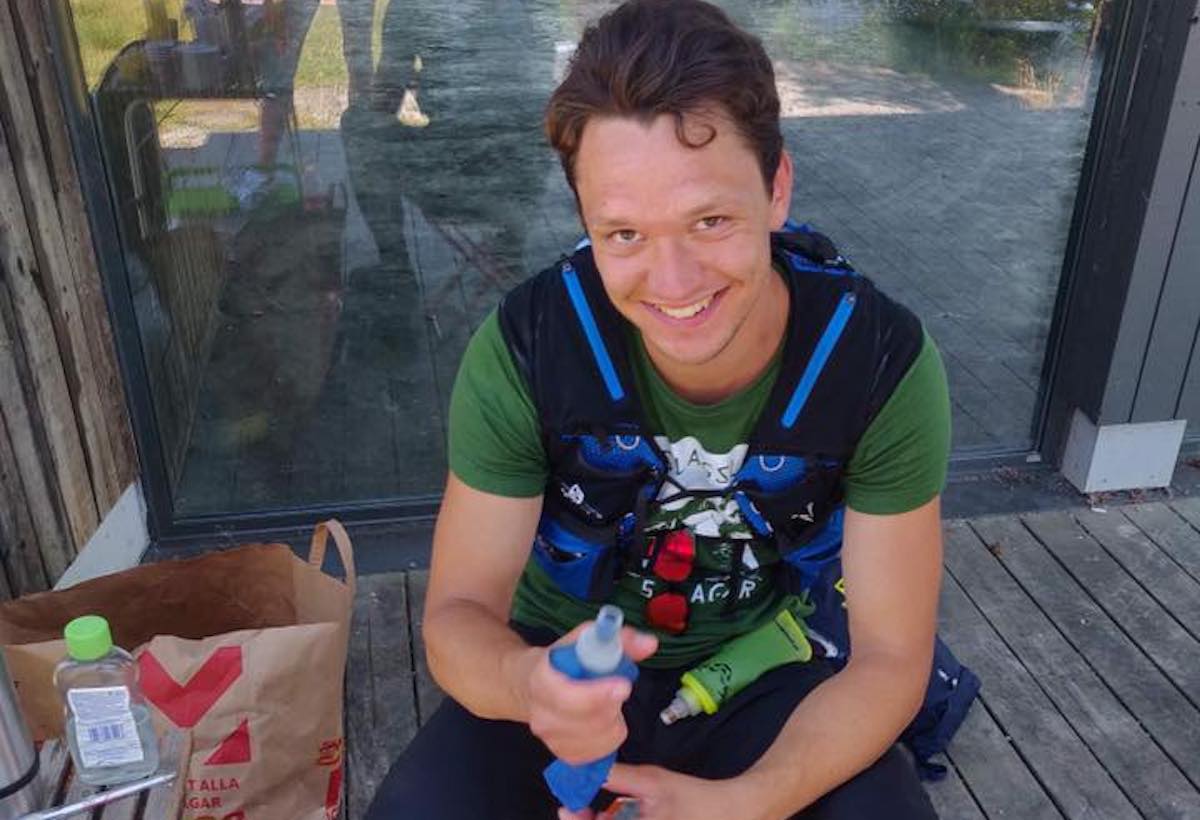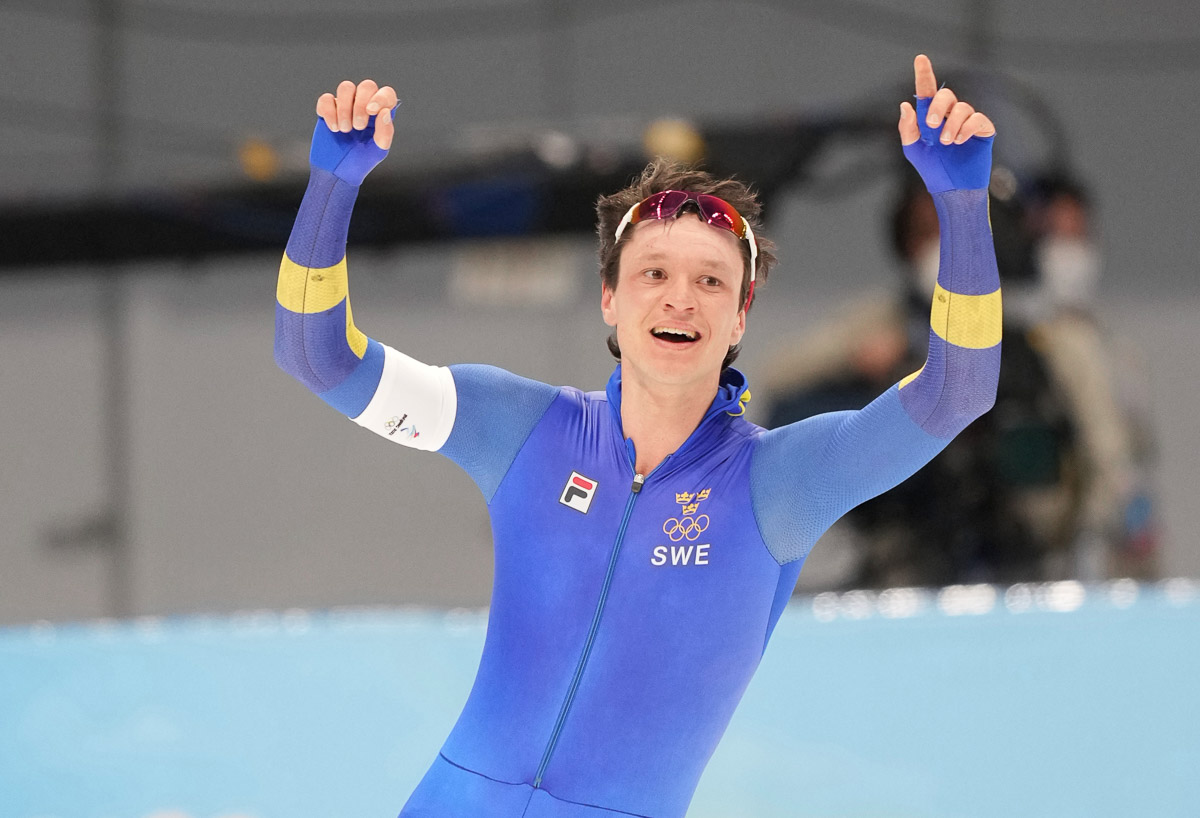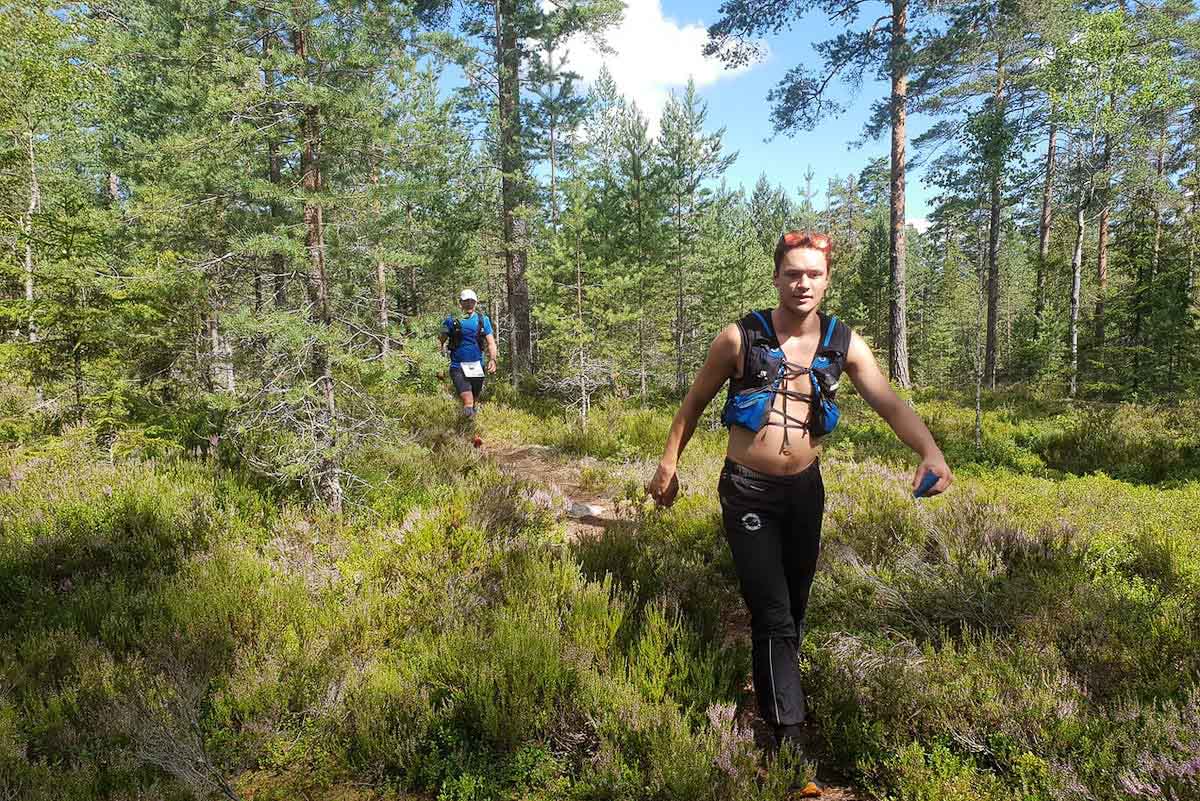 At the 2022 Winter Olympics in Beijing, China, Swedish speedskater Nils van der Poel earned two gold medals in the men’s 5,000-meter and 10,000-meter speedskating events, held respectively on February 6 and 11, 2022.
At the 2022 Winter Olympics in Beijing, China, Swedish speedskater Nils van der Poel earned two gold medals in the men’s 5,000-meter and 10,000-meter speedskating events, held respectively on February 6 and 11, 2022.
In the 5,000 meters, he made up a nearly three-second deficit over the last three laps to overtake his Dutch rivals, win by half a second, and set a new Olympic record for the event. In the 10,000 meters, he won by nearly 15 seconds in a blowout race, bettering his own world record in the distance.
Though both performances were different, they were extraordinary for the 25-year-old phenom who cemented his place in Olympic speedskating history. But what makes van der Poel’s story most fascinating is the alternative path he took to these Olympics — one that has included ultrarunning!

Nils van der Poel during the 2019 Bergslagsleden Five Day Stage Race. Photo: Random Events Sweden/@bergslagsledenpa5dagar/@randomeventssweden
After a disappointing 14th-place finish in the same 5,000-meter race at the 2018 Olympics, van der Poel mysteriously hung up his skates. In a sport where athletes typically train 20 to 30 hours per week year-round, van der Poel decided to take a break from the sport he famously said, “Just sucks.”
For the first year after the Olympics, he enlisted in the Swedish Army. While in the army, he was known to embark on 10-hour bike rides and long, grueling hikes in the forests surrounding the military base.
Then, in the spring of 2019, van der Poel jumped headfirst into ultrarunning and trail running. To say that it was unusual for a world-class speedskater to dabble in long-distance trail running would be an understatement. But van der Poel is most certainly unusual.

Nils van der Poel of Sweden reacts with joy after winning the men’s 5,000-meter speedskating competition at National Speed Skating Oval in Beijing, China, on February 6, 2022. Van der Poel clocked a new Olympic record of 6:08.84 to earn the gold medal. Photo: The Yomiuri Shimbun via AP Images
In May 2019 at the Aros Marathon, a 50-kilometer road race in Sweden, van der Poel finished fifth in a time of 4:07. Then, a few months later in July of that same year, he completed the Bergslagsleden Five Day Stage Race, a 280-kilometer race on Sweden’s Bergslagsleden Trail, in just over 50 hours for another fifth-place finish.
Finally, in October 2019, he ran the Kvinnersta Backyard Ultra, completing 127 kilometers and finishing eighth. One has to assume that this season of ultrarunning primed the pump for his return to speedskating and helped van der Poel hone the skills and discipline he needed to triumphantly return to the international speedskating stage.
For many of us who embark on long-distance running, it becomes our singular focus. Due to the time required to train and the nature of the events, ultrarunners tend to jump into the sport with both feet.
The example of van der Poel is a compelling one, as it is clear he discovered ultrarunning as a diversion from a lifestyle that had worn him down a bit. I can’t help but wonder if running trails provided van der Poel with a fresh perspective, while also providing fuel for his unorthodox training methods.

Nils van der Poel during the 2019 Bergslagsleden Five Day Stage Race. Photo: Random Events Sweden/@bergslagsledenpa5dagar/@randomeventssweden
It is my hope, as a longtime fan of trail running and ultrarunning, that van der Poel’s example rubs off on other world-class athletes. When you think about it, long-distance running provides a fantastic outlet for endurance athletes from other disciplines: it gets you out in nature, tests your limits against yourself and the elements, and provides a wonderfully supportive community that is somewhat lacking in more competitive or cutthroat sports.
What could be better than that? I suspect a certain Swedish speedskating Olympic champion knows the answer.
Bottoms up!
AJW’s Beer of the Week
 This week’s Beer of the Week comes from longtime Taproom favorite Oskar Blues Brewery out of Lyon, Colorado. To mark the 20th anniversary of their incredibly popular Dale’s Pale Ale, Oskar Blues recently released Double Dale’s, an Imperial IPA they call a “double take on the beer that started it all.” With an ABV of 9%, Double Dale’s is robust yet not boozy. Following on the “voluminously hopped” characteristic of the original, Double Dale’s has everything a hophead could want in a beer, and more!
This week’s Beer of the Week comes from longtime Taproom favorite Oskar Blues Brewery out of Lyon, Colorado. To mark the 20th anniversary of their incredibly popular Dale’s Pale Ale, Oskar Blues recently released Double Dale’s, an Imperial IPA they call a “double take on the beer that started it all.” With an ABV of 9%, Double Dale’s is robust yet not boozy. Following on the “voluminously hopped” characteristic of the original, Double Dale’s has everything a hophead could want in a beer, and more!
Call for Comments
- Have you ever turned to other sports to give yourself a break from trail running or ultrarunning?
- Or, have you used our sports, like Nils van der Poel, as a break from another competitive sport that is your main focus?
